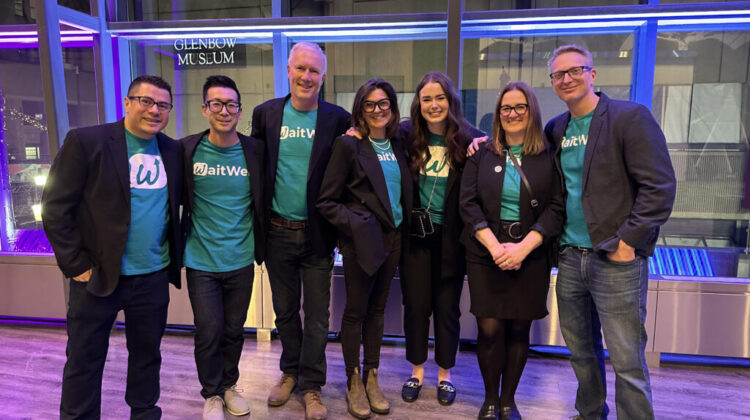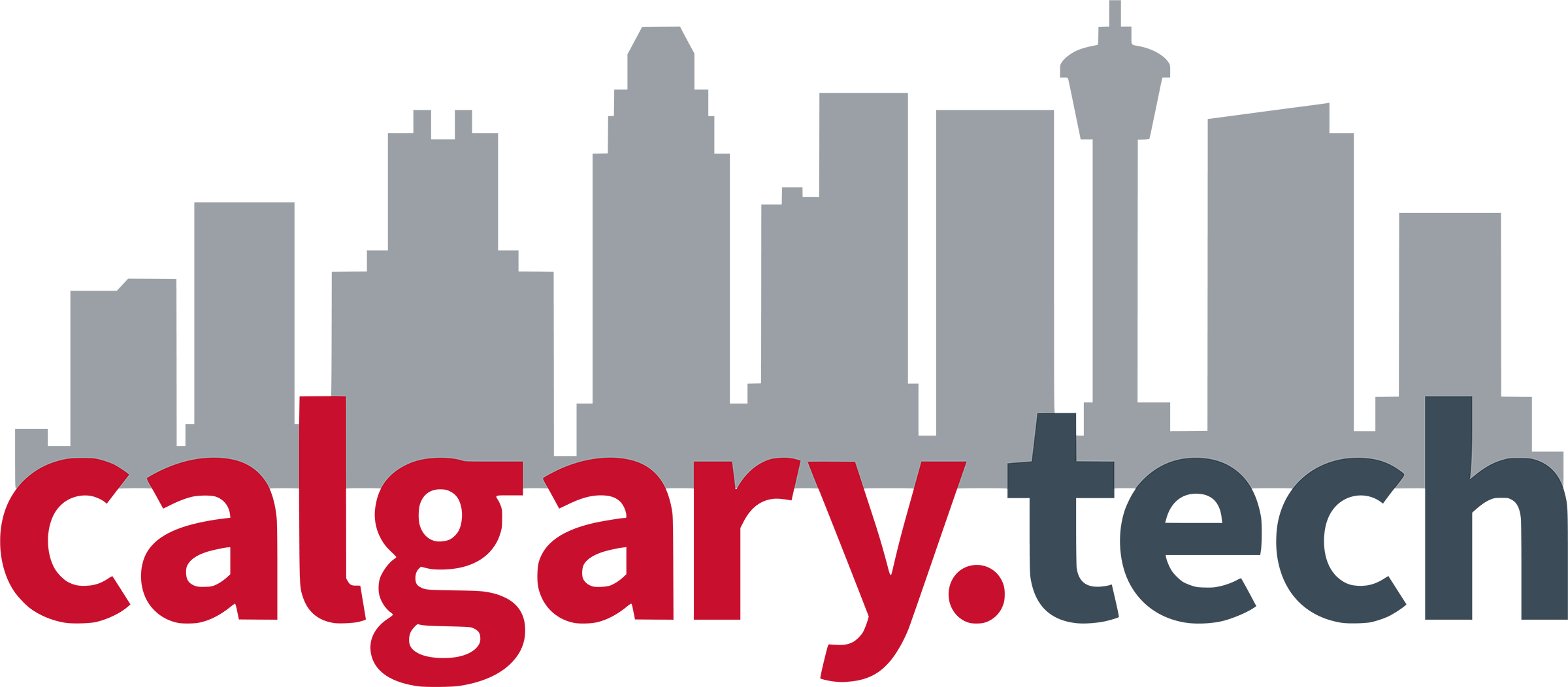
Are you tired of waiting in an ever-growing line for customer service? Well, Albertan power couple Shannon and Steve Vander Meulen, along with co-founder Steve Drew were, too.
With previous experience as owners of a motor vehicle registry in Alberta, the startup-savvy trio launched WaitWell at the beginning of the coronavirus pandemic in hopes of making customer service options less, well, painful for providers and clients alike.
With more than 10 million users and almost 400 locations across North America, WaitWell was named one of the Launch Party Top 10 Startups at Innovation Week YYC’s Launch Party in 2022 for its work in streamlining customer service by removing the need to actively wait in line across universities, public offices, clinics, pharmacies and retail locations.

In July this year, the service workflow solution company secured $1.5 million CAD in seed funding to expand its product and move into new markets, which is set to include private health care and public services in the US.
In October, Shannon was awarded the Woman in Tech Award (presented by Innovate Calgary) as part of the 2023 Start Alberta Tech Awards for her success in launching a venture-backable technology-focused company in Alberta.
A year after WaitWell’s triumph at Innovation Week YYC’s Launch Party, Shannon sat down to discuss the knack of finding a market gap within the tech ecosystem.
How has WaitWell progressed since being named one of the top 10 startups at Innovation Week YYC’s Launch Party last year?
SV: Being in the Top 10 at Launch Party 2022 was pivotal for us for a number of reasons. Firstly, it was really valuable to us to get that level of exposure; one of our leed investors Metiquity Ventures really encouraged us to use the opportunity to connect with potential next-stage investors and venture capital. During Innovation Week last year, being part of the the Top 10 Startups list helped us connect with everyone from investors to job seekers, and even possibly future customers.
We met our lead investor in our Seed B round, Graphite Ventures, during Innovation Week, which also happened right at the beginning of our third year in business. This third year really felt like a transition from startup to scaleup. We now have predictable growth, a team to help us scale and a plan to move into new markets. We have a strong customer base which is helping us to expand through referrals. For WaitWell, Launch Party marked that turning point for us.
What does it mean to have received the Woman in Tech Award at this year’s Start Alberta Tech Awards, and what do you think other founders can take from your experiences to this point?
SV: It’s honestly a huge honour. Alberta is home to some very accomplished women doing incredible things in technology. My founder’s journey has been about partnerships. I had an idea for how technology could solve a problem that existed in my business, so I partnered with Steve Vander Meulen, who had many years of experience in commercializing enterprise software and Steve Drew, who had deep experience in building enterprise software.
A lot of people take themselves out of the race by assuming they have to wear all the hats to be able to start a tech venture. In fact, a lot of skills are necessary and it’s not common that one person has all those skills. I love the saying, “If you want to go fast, go alone. If you want to go far, go with others.” It’s especially true when it comes to building businesses.
In light of starting a new business during the coronavirus pandemic, how important is the need to ‘read the room’ and adapt in building a successful company?
SV: Timing is so key when it comes to starting a business, and I think that’s especially true for a tech startup. Start too early and you may not see the adoption needed to break through and find enough customers. Start too late and there may be too much competition. The truth is that although I often credit COVID as being the impetus for creating WaitWell, I had been struggling with service delivery optimization in my motor vehicle registry for years. COVID was just the match to the kindling.
However, after our first year in business, pandemic-related restrictions had begun to lift and we started to see less demand in the markets that we had initially seen growth in, such as retail. We shifted really quickly to focus on complex service organizations like university registrar offices which stand to benefit on many levels from digitally transforming service delivery. If we hadn’t reacted as quickly as we did, WaitWell may not have endured. We got advice early on to pick a market and go “deep” instead of wide. Luckily, we trusted our own intuition and kept our options open long enough to learn what markets were going to be successful for us.
How do you feel Calgary’s tech ecosystem has evolved since the pandemic, and do you think local businesses benefit from a sense of community within YYC?
SV: Since I got involved in the tech community in 2020, I’ve seen a lot of maturing. Having a home with Platform Calgary, has made a big difference. As much as Calgary is a major city in Canada, it also is still just a small town as well. People are very approachable and generous with their time and a lot of founders who have found success are giving back by mentoring others who are just getting started. I think it’s really important to keep that going. Once you hit your first $1M in revenue, you need to be thinking about what you need to do to get to $10M or $100M, or more. It’s not just startups that need mentorship – scaleups need that too.
You’re on the panel this year to choose the top pick for Launch Party Top Ten Startups, what are you looking for when assessing fellow founders and business models?
SV: I really enjoyed getting to help select this year’s Launch Party Top Ten. For WaitWell, our success is because we identified a real business problem and we developed technology to address it in a way that our competitors hadn’t done. So of course I do look at other startups from a similar perspective.
Is there a real problem here? Does the startup have a novel idea for how to address that problem?
In addition to tech, I also think about the team.
The startup might have identified a problem and a technological solution, but have they assembled the right team to succeed? Do they have the right experience and attitude to be successful? And of course, is the time right? You can have the most brilliant idea, but if you try to launch it at the wrong time, it’s not likely to take off. Launch Party has a track record of shining a light on early-stage Calgary startups that have gone on to be really successful. I’m pretty certain this year will do the same.



Leave a Reply